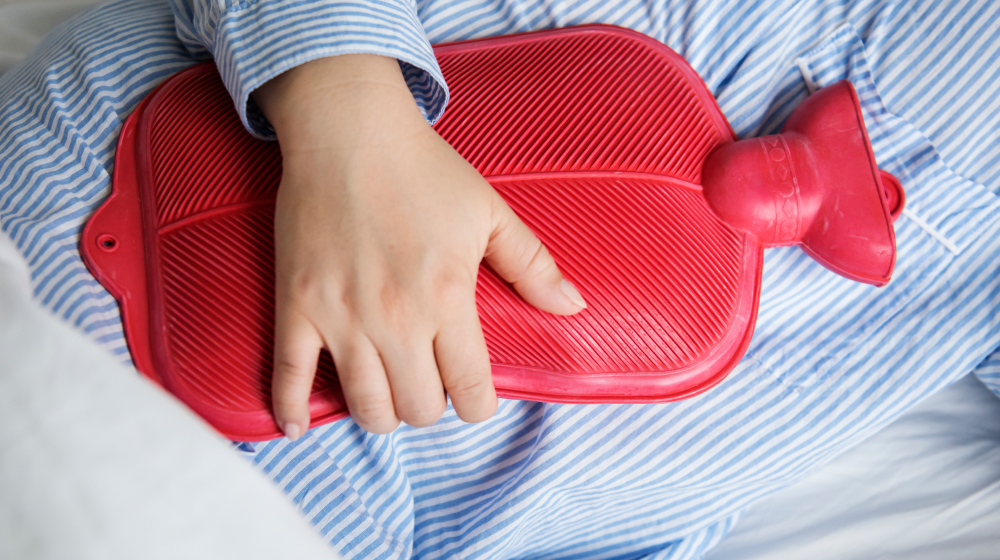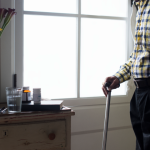Heating Pads During the Fall Season — Yes or No?
Fall is here in New York and while many of us will soon be able to snuggle up with warm blankets and cups of tea, some of us will be reaching for something else that has been a staple of fall routines for years; heating pads. For many seniors, heating pads offer relief from their joint pain, stiffness and muscle aches which tend to increase as the weather gets cooler. But, despite its familiarity, using a heating pad is not always safe for every senior.
This article will discuss when and how heating pads can be an asset for seniors, why they should be avoided and how professional caregivers such as those at Angel Care Home Care Agency Inc. (NY), can assist in providing safe, therapeutic heat during the fall and winter months.
Why Seniors Love Heating Pads
The fall season brings much more than changing leaves. Many older adults experience muscle tension, increased arthritis discomfort or poor circulation as the weather gets cooler. Direct application of heat to a specific area can greatly benefit seniors. It increases blood flow, loosens tight muscles and temporarily relieves pain.
Heat therapy, according to the Arthritis Foundation, “loosens tissues and stimulates blood circulation, making movement easier and less painful.” The success of heat therapy however is dependent upon the duration and method of heat application.
“Heat can be very comfortable for the body, but it should never be a risk to the skin or circulation.” — Dr. Michael Nguyen, Geriatric Care Specialist, NYU Langone Health
Benefits of Heating Pads for Seniors
When utilized properly, heating pads can be a valuable tool for both comfort and pain management for seniors. Some of the main benefits include:
✅ Increased Blood Flow
Heat causes blood vessels to dilate allowing more oxygen to reach sore or stiff muscles and joints.
✅ Relieved Muscle Tension
Gentle heat applied to the affected area can ease muscle spasms and cramps, especially in the lower back, shoulders and knees.
✅ Faster Recovery After Exercise
Low to moderate heat applied after physical activity or therapy can promote relaxation of the muscles and prevent inflammation.
✅ Non-invasive Pain Relief
Chronic pain sufferers find that low to moderate heat applied to the area of the body experiencing chronic pain can provide relief from pain without the need for prescription medications or therapy.

Risks and When to Use Heating Pads with Caution
While heating pads do offer several benefits for seniors, there are also several risks associated with them — primarily for seniors with chronic medical conditions or thin, fragile skin. According to hospital reports in New York, many minor burns experienced by seniors in their homes are caused by improper use of heat therapy.
Below is a summary of when heating pads should not be used or should be used with extreme caution:
| Condition / Situation | Caution Reason |
| Diabetes or neuropathy | Since diabetics and individuals suffering from neuropathy have diminished sensation, they may not be aware of when skin is burning. |
| Cardiovascular disease | Excessive heat can cause fluctuations in heart rate and blood pressure. |
| Poor circulation | Exposure to prolonged heat can cause further tissue hypoxia (oxygen deficiency) |
| Skin Fragility/Wounds | Individuals with thin or damaged skin are at greater risk of sustaining burns. |
| Sleeping With a Heating Pad | Using a heating pad during sleep creates a risk of either overheating or causing accidental injury |
It is also suggested that seniors refrain from using old heating pads without automatic shutoff features. Electrical safety and regulated temperature control is essential, especially when using electric heat appliances in multi-unit dwellings such as apartments found commonly throughout New York City.
Recommended Safe Practices for Heating Pad Usage at Home
To allow seniors to enjoy the comforts of heat therapy while minimizing the risk of injury or burn, consider the following safe practices:
- Check the Temperature — It Should Feel Warm, Not Hot
- Use for Short Intervals — Typically 15-20 Minutes at a Time
- Do Not Apply Directly to Bare Skin — Use a Towel or Protective Layer
- Do Not Use Over Swollen, Bruised, or Inflamed Areas
- Choose Modern Devices — Automatic Shutoff Features & Adjustable Settings
- Consult a Doctor or Home Caregiver Before Using Heat Therapy If You Have a Chronic Condition
“The right balance between comfort and safety is what makes a big difference for seniors during colder seasons.”
The New York Context: Combining Comfort and Safety
Residing in New York means dealing with unexpected temperature fluctuations. A sudden drop in temperature can exacerbate arthritis, increase stiffness in the joints or hinder movement for older residents — especially those living in older buildings with spotty heating.
Professional caregivers play a vital role in assisting seniors with heat therapy. They not only ensure that seniors utilize heating pads correctly and safely, but also help seniors maintain their activities of daily living, hydration levels and warmth through safe, holistic caregiving practices.
Angel Care Home Care Agency professionals ensure:
- Heating devices are used properly and safely;
- Alternative warming methods (such as warm compresses, gentle stretching, layered clothing and/or thermal socks) are available to seniors;
- Seniors remain comfortable without being exposed to excessive heat or dehydration.
Alternatives to Heating Pads
For seniors who cannot safely use direct heat therapy, alternatives can be just as effective in providing comfort:
- Warm Baths/Showers — Increase circulation and flexibility;
- Heated Blankets — Provide consistent low heat;
- Massage Therapy/Gentle Stretching — Relieve natural stiffness in the muscles;
- Thermal Socks/Layered Clothing — Prevent chill without exposing the skin to heat;
- Hot Water Bottles (with Covers) — Simple, Low-Tech, Gentle Heat.
- Each alternative provides comfort without the risk of electrical heat exposure.
A Message from Angel Care Home Care Agency Inc.
At Angel Care Home Care Agency Inc., we firmly believe that comfort and safety should be mutually inclusive. Our goal is to provide quality, compassionate, in-home care to seniors throughout New York — keeping seniors safe, warm and active throughout the fall and winter months.
Our professionally trained caregivers assist clients with managing seasonal changes by:
- Creating personalized home comfort plans;
- Supervising safe usage of heating/mobility devices;
- Assisting with daily routines and medication;
- Providing companionship to prevent loneliness and promote overall well-being.
“Comfort is not just about being warm — it’s the sense of being cared for, attended to and connected.”
If your loved one is living alone or experiences challenges with mobility this fall, our caregivers can provide the assistance your loved one needs to comfortably live at home without risk.
Angel Care Home Care Agency Inc. — supporting the safety, care and warmth of New York’s seniors, in their own homes.

Family members dealing with elderly relatives in NYC and across the state of New York are frequently faced with the very difficult decision - should I be hiring a nursing home for my relative's long-term care or hiring someone to do in-home care? While both types of care provide safe and supportive care for individuals, the type of care provided varies greatly in terms of cost, comfort and overall quality of life. Below is a comprehensive comparison of nursing home and home care, utilizing current statistics and insights from experts, to assist you in making this decision. Additionally, this article will explore how many New Yorkers currently prefer in-home care because of its personalized approach to care combined with the comfort of being able to receive care in the comfort of their own home. Cost Comparison of Care Models in New York New York ranks among the most expensive states in the nation for long-term care, according to the Genworth Cost of Care Survey 2024. In addition, the cost difference between nursing home care and alternative forms of home-based care can exceed thousands of dollars per month. Care Model Average Monthly Cost (NY, 2024) What Services Are Provided? Private room nursing home $15,000 – $17,500 24/7 supervision, meals, medical services, common area use Semi-private room nursing home $13,000 – $14,000 Shared room, nursing assistant, medical services and general activities Assisted living facility $6,000 – $8,000 Residence, meals, some medical support and basic activities Full-time home health aide (40h/week) $5,500 – $6,500 Customized home care services, flexible hours, emotional support and companionship Part-time home caregiver (20h/week) $3,000 – $3,800 Minimal assistance, reminders to take medications, daily visits/check-in Source: Genworth Cost of Care Survey, NY 2024; AARP NY caregiving report As illustrated in the table, nursing homes are approximately 2-3 times more expensive than home-based care alternatives. Families with a limited budget will find the cost savings of home-based care options to be a determining factor. "The average annual cost of a private room in a New York nursing home exceeds $200,000 — a sum that could cover years of professional home care." — AARP New York, 2024 Care Report Additional Financial and Emotional Factors To Consider In evaluating potential care options, many families initially focus on the financial aspects of the care options. However, financial considerations represent only part of the equation. Additional factors such as emotional comfort, independence and mental well-being should also be evaluated. Pros and Cons of Nursing Home Care ✅ Medical care and continuous staffing available ✅ Structured daily routines ❌ Limited privacy and space to call your own ❌ High stress levels associated with relocating to a new, unfamiliar environment ❌ Potential exposure to infection (as experienced during the COVID-19 pandemic) Pros and Cons of In-Home Care ✅ Familiar home setting and greater independence ✅ Personalized attention and interaction with caregivers ✅ Flexibility in scheduling to meet the individual's needs ✅ Greater family involvement in the care process ❌ May limit immediate access to hospital-level care (dependent upon specific circumstances) Research has demonstrated that older adults experiencing care at home have significantly reduced (25-30%) stress levels and report higher satisfaction compared to those receiving care in institutional settings (National Institute on Aging, 2023). Which Type of Care is Best for Which Individuals Ultimately, whether to select home care or a nursing home will depend on multiple factors including the individual's health status, preferences and social needs. Benefits of In-Home Care Ideal for individuals who are physically capable of performing daily activities but require assistance (i.e., bathing, cooking, cleaning). Ideal for individuals who desire independence and the comfort of remaining in their familiar environment. Ideal for families that wish to continue playing an active role in the care of their relatives. Ideal for patients recovering from surgery or illness requiring temporary care and support. Benefits of Nursing Home Care Recommended for individuals with multiple medical problems requiring ongoing monitoring. Recommended for patients with advanced dementia or significant mobility impairments. Recommended for individuals with no family support system or those needing 24-hour supervision. "For many families, the decision is not about selecting one type of care versus another — it is about creating a balance between medical safety and emotional well-being." Emotional Well-being and Quality of Life Research has consistently shown that a person's emotional well-being directly correlates to their ability to recover physically. Home care enables seniors to preserve their daily routines and establish a sense of identity and dignity. Professional caregivers provide seniors with a high level of safety through: Monitoring their medications and diet; Preventing falls, burns, and/or medication-related accidents; Offering companionship and stimulating conversation throughout the day. Creating Trust and Empathy Through Relationships Trust and empathy are created through the relationships developed between seniors and their caregivers. This relationship is often absent in institutional care models. The "aging in place" movement — remaining in one's home as opposed to moving into an institutional care model — continues to grow in popularity throughout New York. According to the New York State Office for the Aging, almost 70% of adults aged 65+ would prefer to remain at home for as long as possible if they had access to professional support. As a result, families are increasingly seeking out licensed home care agencies that offer professional caregivers who can provide both supportive and compassionate care — providing a safe and secure environment for the seniors. Message from Angel Care Home Care Agency Inc. At Angel Care Home Care Agency Inc., we believe that home is much more than a physical structure — it represents security, comfort and emotional stability for our clients. Our goal is to assist seniors in maintaining their independence, while also offering them the highest standards of professional care and support. Angel Care offers: Certified caregivers trained in senior care and fall prevention; Hourly and full-time service plans tailored to meet each client's unique needs; Emotional support and companionship to alleviate feelings of loneliness; Coordinated efforts with families and healthcare providers to facilitate seamless communication. Selecting in-home care does more than just save money, it preserves the dignity, independence and connection to others that seniors may have otherwise lost. Let us assist you in providing your loved ones with the safest, most comfortable and compassionate care possible in the comfort of their own home.

Dementia, as a major public health concern, is becoming a significant issue for aging populations across the United States. The New York State Department of Health reports that over 410,000 New Yorkers have Alzheimer's disease or some other type of dementia, and the numbers are expected to drastically increase to over 730,000 people by 2030. While there has been no established method to completely stop dementia through diet alone, the research indicates that nutrition is a vital factor in slowing cognitive decline, reducing symptoms associated with depression, and improving overall quality of life for individuals with dementia. Understanding the "brain-feeding" process will become as important for families and caregivers of dementia patients as will medications and therapies. HHA at Angel Care Home Care Agency Inc., provides its home care clients with a balanced combination of physical and mental well-being by integrating nutritional awareness into all of our home care services, so each meal contributes not only to the client's physical health, but also to their mental health. Nutrition and Brain Function Since the brain requires approximately 20% of the body's entire energy to continue to function properly, it is necessary for the brain to receive an ongoing supply of nutrients to continue to think clearly, remember and experience a normal mood. However, for individuals with dementia, this balance is often lost due to changes in metabolic function, appetite and sensory perception. Research conducted at Harvard Medical School and the National Institute on Aging (NIA), has shown that diets high in antioxidant compounds, omega-3 fatty acids, and vitamins B6, B12, D and E can help to maintain cognitive functions and slow down the development of neurodegenerative diseases. "What is good for the heart is good for the brain," states Dr. Laura Chen, neurologist at Mount Sinai Hospital in New York, noting that proper nutrition improves blood flow to the brain, reduces inflammation and supplies the neurons needed to store memories. The MIND Diet: A Scientifically Proven Method to Promote Brain Health One of the most researched methods to promote brain health is the MIND diet, which stands for Mediterranean-DASH Intervention for Neurodegenerative Delay. The MIND diet was created by researchers at Rush University by combining two of the best known diets for promoting health: the Mediterranean and DASH diets. These diets emphasize plant-based and low fat/low sugar foods. Recommended Foods Benefits for the Brain Frequency Green Leafy Vegetables (Spinach, Kale, Broccoli) Antioxidants and Vitamin K help to slow cognitive decline. at least six servings per week Fruits (Blueberries, Strawberries) Flavonoids found in blueberries and strawberries protect brain cells. 2+ times per week Grains (Quinoa, Oats, Brown Rice) Stable glucose to fuel brain energy. daily Fish (salmon, sardines, trout) Omega-3 fatty acids help to heal damaged neurons. one to two times per week Olive oil Heart-healthy and anti-inflammatory main cooking oil Nuts and seeds Vitamin E, Magnesium and healthy fats to support brain cell membrane. a handful daily Beans and lentils Plant-based protein and fiber to support steady brain energy. three+ times per week Chicken Supports neurotransmitters. 2+ times per week Limited red meat, cheese, butter, sweets Helps to reduce vascular stress and inflammation. use sparingly Because the MIND diet is not only beneficial, but also sustainable, for many older adults in New York with dementia, it is a viable option. Strategies to Aid Families and Caregivers For family members caring for a loved one with dementia, you may find these practical and scientifically supported recommendations helpful: Create Consistent Meal Times — Consistency Helps Reduce Confusion and Anxiety. Provide Smaller Portions — Large Plates May Overwhelm the Individual and Discourage Eating. Provide Finger Foods — Easier to Handle Than Larger Portion Sizes. Use Colorful Tableware — White Plate on Dark Table Makes Food More Distinct. Include Memory-Friendly Ingredients — Blueberries, Walnuts, Avocado, Turmeric and Salmon. Use Processed Foods Sparingly — Trans Fats and Added Sugars Increase Inflammation. Drink Frequent Hydration — Offer Water-Rich Foods Like Soups, Fresh Fruit and Herbal Teas. Maintain Calm Environment When Dining — Minimize Distractions. Each of these methods can greatly alter a daily meal from being simply a necessity into a time of comfort, love and emotional stability for both the caregiver and the individual with dementia. How to Supports Cognitive Nutrition At Angel Care Home Care Agency Inc., we provide comprehensive care to individuals with dementia by combining home care with nutritional awareness and mental stimulation. Our caregivers and care coordinators provide: Nutrient-dense meals tailored to meet specific dietary requirements and health conditions; Safe feeding and hydration practices to avoid malnutrition; Reminders to ensure that medications and supplements are taken consistently; Opportunities for social interaction and cognitive stimulation through cooking together or talking about shared meal traditions; Coordinate with physicians and registered dietitians to continually assess the client's nutritional status. "It Is Important That Every Bite Not Only Provides Energy for the Body, But Also Strengthens the Mind," says Angel Care's Registered Nurse Supervisor. "That is What True Person-Centered Care Means." The New York Perspective: Access to Resources and Education Community resources to support dementia nutrition exist throughout New York City, including programs provided by the Alzheimer's Association NYC Chapter, Meals on Wheels, and several local senior centers. However, for many families, coordinating these services can be daunting, especially considering the responsibilities of working, caregiving, and managing finances. Therefore, having a reliable agency such as Angel Care Home Care makes a substantial difference. We provide families with resources and information regarding local food delivery programs, Medicaid nutrition benefits, and additional sources of supplemental feeding to ensure that no senior in our care is left without support or nourishment. Conclusion: Nurturing the Mind Feeding the brain is a metaphor for feeding hope. Proper nutrition cannot prevent or treat dementia, but it can slow the rate of decline, elevate mood, and improve the overall quality of life for individuals with dementia. When families have the knowledge of nutritious meal planning, and the consistency of mealtime routines, combined with compassionate and supportive home care, seniors can thrive in their own homes, maintain their dignity and enjoy a comfortable existence. At Angel Care Home Care Agency Inc., we strive to help families across New York, develop a balance between home care services and empathy, nutrition and human connection.



